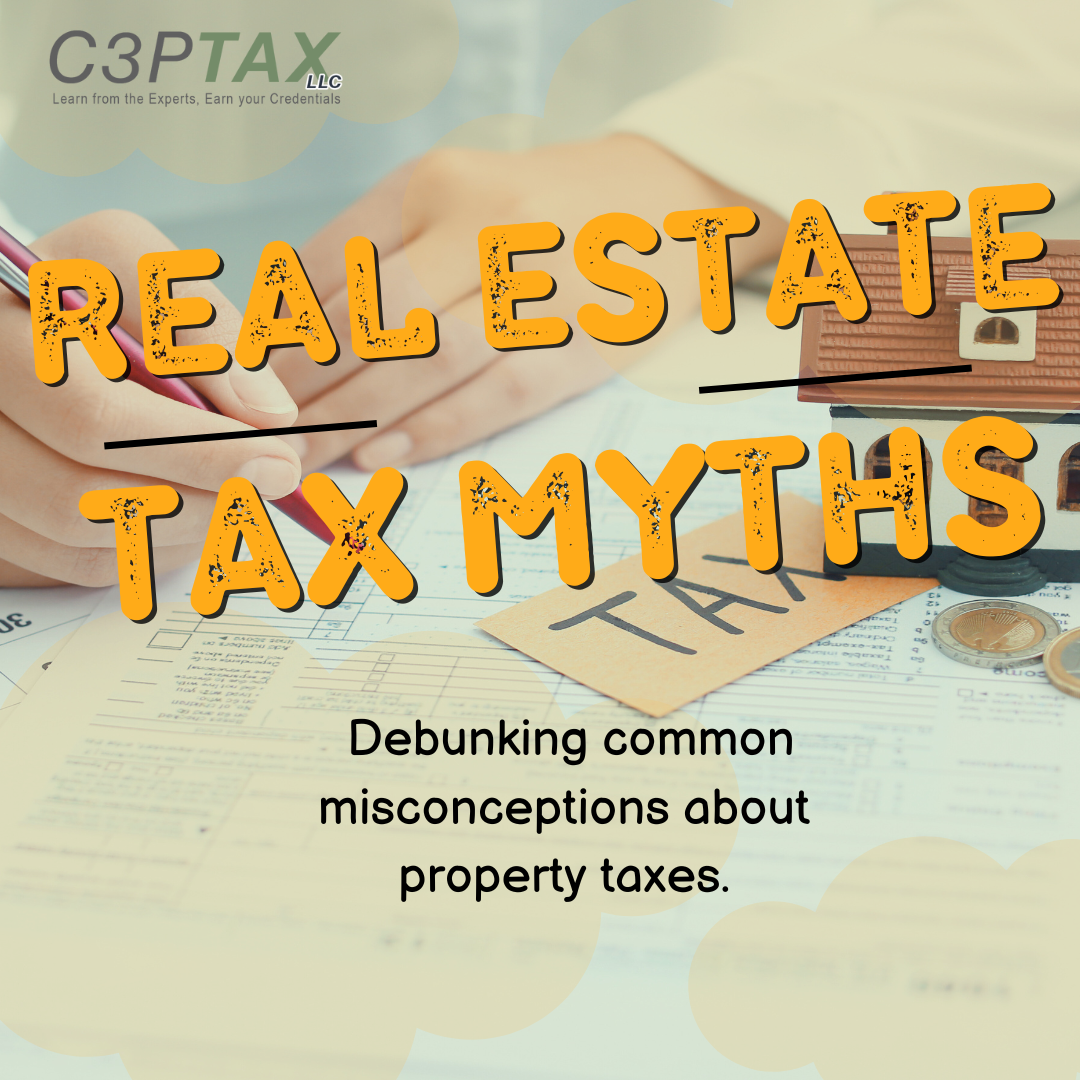

Introduction
The decision to rent or own property is a significant one, with far-reaching financial consequences. At its core, renting involves paying a landlord for the use of a property, while owning property entails purchasing it outright or through a mortgage. Both paths offer distinct advantages and disadvantages, particularly when it comes to tax implications.
For prospective homeowners, understanding the tax benefits associated with ownership, such as mortgage interest deductions and property tax deductions, can be essential for long-term financial planning. Conversely, renters often face different financial considerations and should be cognizant of the tax implications tied to leasing agreements and the potential lack of direct tax benefits.
As the real estate market becomes increasingly complex, the importance of comprehending these tax implications cannot be overstated. Such knowledge not only aids in making informed and strategic financial decisions but also optimizes the potential for monetary savings. In essence, grasping the nuanced differences in tax treatments between renting and owning property is indispensable for anyone looking to navigate the real estate landscape effectively.
Tax Benefits of Owning Property
Owning a property comes with numerous tax advantages that can significantly enhance an individual’s financial standing over time. One of the most notable benefits is the mortgage interest deduction. Homeowners in many jurisdictions can deduct the interest paid on their mortgage from their taxable income, which can lead to substantial savings, particularly in the initial years of the mortgage when interest payments are higher.
In addition to the mortgage interest deduction, property tax deductions are another valuable benefit for homeowners. Property taxes paid during the year can typically be deducted from taxable income, reducing the overall tax burden. This deduction can be especially advantageous in areas with high property taxes, providing a buffer against the escalating costs of homeownership.
Homeowners might also benefit from capital gains exclusions when selling their primary residence. Under certain conditions, individuals can exclude up to $250,000 (or $500,000 for married couples filing jointly) of capital gains from taxable income if they have owned and lived in the property for at least two out of the past five years. This exclusion can lead to significant tax savings upon the sale of a home, allowing homeowners to retain more of their profit.
These tax benefits not only provide immediate financial relief but can also contribute to long-term wealth accumulation. The savings realized from deductions can be redirected towards other investments or used to pay down the mortgage faster, thereby increasing equity in the property. Over time, these cumulative financial advantages underscore the appeal of homeownership as a strategic financial decision.
When it comes to tax deductions, renters face more limited options compared to homeowners, who benefit from a range of tax incentives. However, there are still some specific scenarios where renters can take advantage of tax deductions, albeit more specific and less widespread.
Tax Deductions for Renters
One significant area where renters can benefit is through home office deductions, particularly if they are self-employed or work from home. The Internal Revenue Service (IRS) allows eligible taxpayers to deduct certain expenses related to a home office, such as a portion of their rent, utilities, and internet costs. To qualify for these deductions, the home office must be used exclusively and regularly for business purposes. This requires detailed record-keeping, but the potential tax savings make it worthwhile for individuals who work remotely or run their own businesses from a rented residence.
Additionally, some states offer tax credits for renters, aimed at providing relief for housing costs. These credits vary in eligibility criteria and amounts, but they generally target lower-income households. For instance, California’s Renter’s Credit provides a modest refund to qualifying renters, which can offer some financial alleviation come tax season. It’s crucial for renters to research their specific state tax codes to identify any applicable credits or deductions.
Despite these options, renters don’t enjoy the same breadth of tax deductions as homeowners. Homeowners can deduct mortgage interest payments and property taxes, among other benefits, which significantly lower their taxable income. Renters, on the other hand, do not have access to these deductions, placing them at a disadvantage in terms of tax benefits.
The disparity in tax deductions between renting and owning propels many individuals to eventually pursue homeownership. Yet, understanding the limited deductions available to renters can still provide modest but valuable savings. It is essential for renters to stay informed and maximize any potential tax benefits available to them, no matter how restricted compared to homeowners.
When considering the tax implications of homeownership, it is essential to understand the role of depreciation, especially for individuals who rent out part of their property or own rental properties. Depreciation is a non-cash deduction that allows property owners to recover the cost of an income-producing property over its useful life, thereby reducing their taxable income. For tax purposes, residential rental properties are typically depreciated over 27.5 years, allowing for a consistent annual deduction that can create significant tax savings.
For homeowners who rent out a portion of their residence, understanding how to allocate depreciation between personal and rental use is crucial. The rental portion of the property can be depreciated, contributing to lowering the overall tax burden. However, it is fundamental to maintain accurate records to ensure correct accounting practices.
Moreover, depreciation deductions can lead to substantial benefits for long-term property investments. By reducing taxable income, property owners can lessen their immediate tax liabilities, which can be particularly advantageous in managing cash flows and reinvesting in property maintenance or enhancements. Over time, these consistent tax savings can accumulate, offering financial advantages that support sustained property value growth and potentially favorable returns on investment.
However, it is also important to consider the potential implications of depreciation recapture upon selling the property. When a depreciated property is sold, the Internal Revenue Service (IRS) requires that any depreciation deductions taken must be “recaptured” and taxed as ordinary income, up to a certain limit. This means that while depreciation provides tax relief during the ownership period, it may result in additional tax liability upon disposition of the property.
Effective tax planning around depreciation requires a strategic approach, often necessitating advice from tax professionals to navigate the complexities and optimize financial outcomes. Thus, for homeowners and investors in rental properties, understanding and utilizing depreciation can be a pivotal element in comprehensive tax strategy and property investment planning.
Tax Impact of Renting: No Real Property Tax
When evaluating the tax implications of renting versus owning property, one critical factor to consider is the absence of real property tax for renters. Unlike property owners who are required to pay annual property taxes based on the assessed value of their property, renters are exempt from this financial obligation. This absence can result in significant cost savings that can impact the overall affordability of renting.
Real property taxes can be a substantial expense for homeowners, often equating to thousands of dollars each year. This tax contributes to local revenues used for public services, but it also increases the total cost of homeownership. Renters, by contrast, do not have to contend with this additional expense, making renting a more predictable and often more affordable option in the short term.
Moreover, the lack of real property tax also simplifies the financial planning process for renters. Homeowners must account for the variable nature of property taxes, which can fluctuate based on local government budgets, changes in property values, or new tax levies. Renters, on the other hand, benefit from fixed rental costs without the burden of these unpredictable tax payments.
While the exemption from property tax is not a traditional tax benefit, it essentially functions as a financial relief for renters. The cost-saving advantage allows renters to allocate their funds toward other financial goals or necessities, potentially improving their overall financial stability. It also means that, from a purely financial perspective, renting may provide more liquid assets for tenants compared to the tied-up capital faced by homeowners through property tax obligations.
This cost-saving aspect is a crucial consideration for individuals deciding between renting and owning property, as it highlights a key economic advantage of renting. Without the added pressure of real property tax, renters can experience a more manageable and less financially burdensome housing solution.
When comparing the tax implications of renting versus owning property, one critical area to explore is the array of tax credits and incentives available to both renters and homeowners. Federal and state governments often provide various tax credits to promote energy-efficient home improvements, and these incentives can significantly influence annual tax liabilities depending on one’s living situation.
Federal Tax Credits for Homeowners
Homeowners can benefit from several federal tax credits designed to encourage energy efficiency and renewable energy use. For instance, the Residential Energy Efficient Property Credit can offset the cost of installing solar panels, wind turbines, and other renewable energy systems. Another notable credit is the Nonbusiness Energy Property Credit, which covers certain improvements such as energy-efficient windows, insulation, and heating systems. These credits can be substantial, often covering a significant percentage of the improvement costs, thereby reducing homeowners’ overall tax liability.
State and Local Incentives
In addition to federal programs, many states and local governments offer their own tax incentives for energy-efficient home improvements. For example, state-specific rebates and credits can provide additional financial relief for installing renewable energy systems. Homeowners in states with these programs can enjoy compounded benefits, resulting in even greater reductions in annual tax responsibilities.
Tax Credits for Renters
While renters typically have fewer opportunities to directly benefit from energy-related tax credits, some states offer programs that indirectly support renters. For example, certain states provide renters’ tax credits aimed at offsetting the cost of rent itself. Additionally, renters living in energy-efficient or green-certified rental properties might benefit from lower utility costs, even though the direct tax incentives are more bureaucratically funneled.
Ultimately, understanding the availability and impact of these tax credits and incentives is crucial for both renters and homeowners. Properly leveraging these benefits can lead to noteworthy tax savings and make a difference in overall financial planning and annual budget management.
Investment Properties and Their Tax Implications
Owning investment properties introduces a unique set of tax considerations that differ significantly from the tax obligations renters face. One of the primary elements owners must address is rental income. Any income derived from renting out a property is generally taxable and must be reported to the IRS. This income is taxable in the year it is received, but investors can mitigate the tax burden through various deductions and allowances.
Among the most common deductions available for landlords are expenses such as maintenance and repairs. These deductions play a crucial role in reducing the taxable rental income. Routine maintenance, such as painting, plumbing repairs, or repairing appliances, are fully deductible in the tax year they incur. Additionally, improvements that enhance the property’s value can also be depreciated over a set period, rather than being deducted all at once.
Another significant tax consideration for investment property owners is the passive activity loss (PAL) rules. Typically, real estate rental operations are classified as passive activities by the IRS, meaning losses from these activities can usually only be used to offset other passive income. However, if the property owner actively participates in managing the rental, they may be able to deduct up to $25,000 of rental property loss against other income, subject to income limitations.
In contrast, renters do not face these investment tax responsibilities. Renters generally do not report rental payments on their tax returns, as these payments are personal expenses rather than income-producing activities. This simplicity spares renters from needing to maintain meticulous records of repairs, maintenance, or tenant interactions for tax purposes.
Furthermore, renters avoid the complexities associated with depreciation, passive activity loss limitations, and the necessity of filing additional tax schedules. Consequently, while owning investment properties can offer substantial financial benefits and build equity over time, it also requires navigating an intricate tax landscape that renters are not required to engage with.
Conclusion
In our comparative analysis of renting versus owning property, we have explored the significant tax implications associated with both options. Owning property tends to offer more substantial tax benefits, such as mortgage interest deductions, property tax deductions, and potential capital gains exclusions upon selling the property. On the other hand, renters may benefit from avoiding substantial upfront costs and ongoing maintenance expenses, even though they do not directly receive tax deductions related to property ownership.
However, it’s essential to recognize that the decision to rent or own should not rely solely on tax considerations. Each individual’s financial situation, long-term goals, and lifestyle preferences play a crucial role in determining the most suitable option. For instance, individuals who prioritize stability and foresee long-term residence may find owning property more advantageous. Conversely, those who value flexibility or who might relocate frequently could find renting more practical despite the absence of ownership-related tax benefits.
Given the complexity and ever-evolving nature of tax laws, consulting with a tax professional is highly recommended. A tax advisor can provide personalized guidance, ensuring that individuals fully comprehend the various tax implications and optimize their financial outcomes accordingly. Thoroughly understanding tax benefits and obligations enables informed decision-making and potentially significant financial savings.
Ultimately, the decision between renting and owning property is multifaceted, encompassing tax implications, financial readiness, and personal lifestyle considerations. By weighing these factors carefully and seeking expert advice, individuals can navigate the intricacies of property-related tax matters effectively and make choices that align with their financial strategies and goals.
 Français
Français 
















